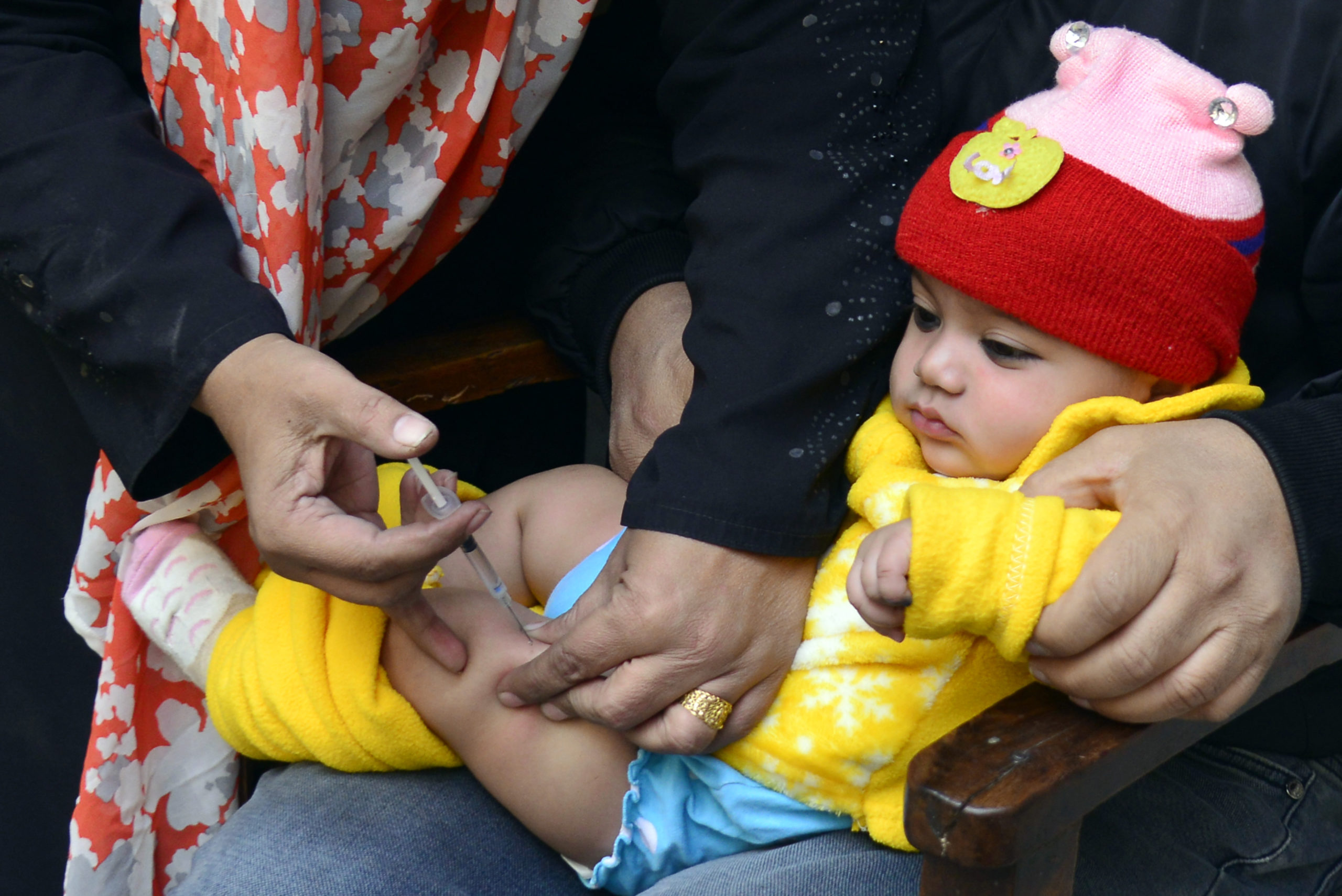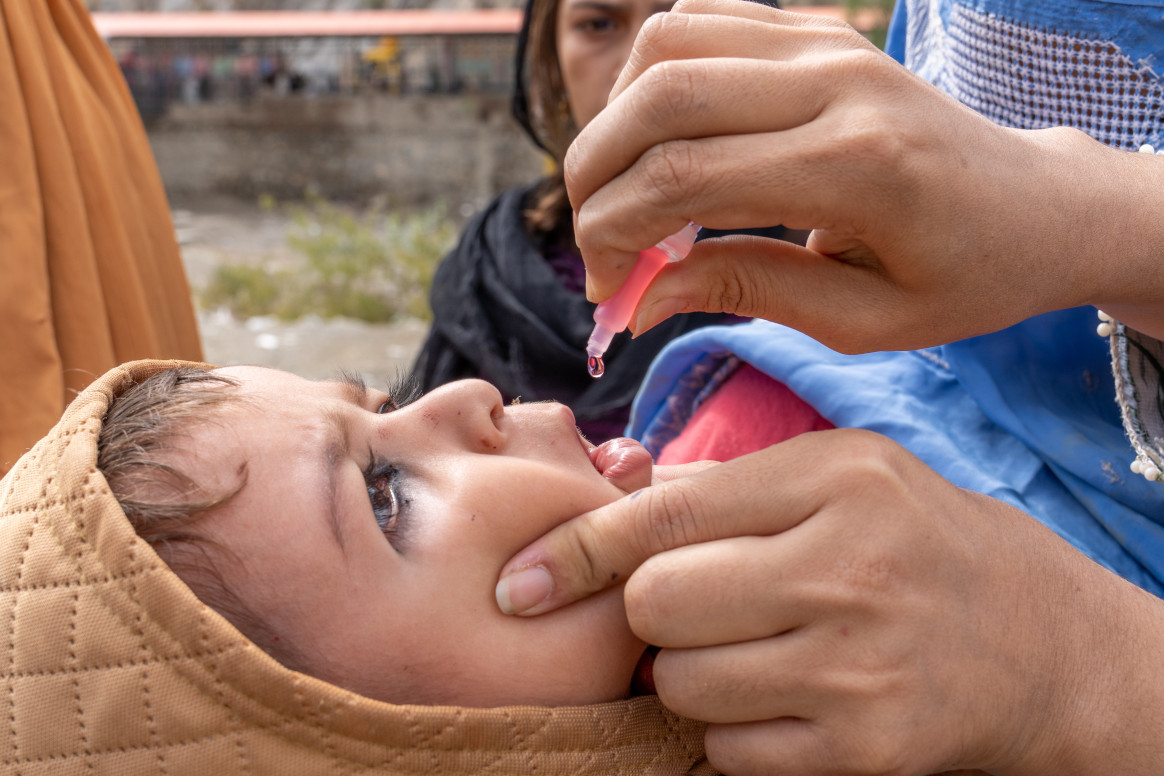
13 March 2021, Brazzaville – To rapidly and sustainably stop outbreaks of circulating vaccine-derived poliovirus type 2 (cVDPV2) in African countries, a modified vaccine, known as novel oral polio vaccine type 2 (nOPV2) is now being rolled out.
Last year, on 25 August 2020, Africa made history with the African Region Certification Commission for Polio Eradication independently certifying that the Region was free of wild poliovirus. This is the second disease to be kicked out of Africa after smallpox more than 40 years ago.
This achievement is remarkable, considering that in the 1990s wild poliovirus paralysed more than 75,000 African children every single year – a situation that prompted Nelson Mandela in 1996, joined by Rotary International and other partners, to issue a stark call to action: Kick Polio Out of Africa!
All strains of wild poliovirus have now been interrupted in the continent. The last case of wild poliovirus was in August 2016.
However, this tremendous progress remains an unfinished success story. Although Africa is free of wild poliovirus, countries continue to be affected by another form of the virus, known as circulating vaccine-derived poliovirus type 2 (cVDPV2). Such strains are rare, but can occur in under-immunized communities with limited access to safe water and sanitation.
Populations that are adequately immunized are protected from both wild and vaccine-derived strains of poliovirus. However, because of gaps in immunization coverage across Africa, 20 countries have been affected by cVDPV2 outbreaks since 2018.
Now, intensified efforts are being launched to finish polio once and for all, to ensure no child in Africa will ever be paralysed by any strain of this virus.
The novel OPV2 vaccine has been in development since 2011, and in November 2020, WHO’s Prequalification Team issued an emergency use listing (EUL) recommendation enabling initial roll-out in countries affected by cVDPV2 outbreaks. Soon after the issuance of the EUL, the WHO Regional Director for Africa, Dr Matshidiso Moeti, advocated to countries to use this additional tool to stop all forms of polio in Africa.
For nOPV2 to be deployed and used under the EUL, special readiness requirements and criteria need to be met. The Polio Rapid Response Team at WHO’s Regional Office for Africa, in close coordination with other Global Polio Eradication Initiative partners, has been working intensely with countries and partners across the continent to respond to outbreaks of cVDPV2 and prepare for the roll out of nOPV2.
As countries in the Region gear up to roll out this new tool for outbreak response, with WHO’s support they are developing supply, demand and deployment plans; ensuring expedited pathways for national regulatory approvals; enhancing surveillance and laboratory capacity; investing in meeting cold-chain capacity and vaccine management requirements; ensuring vaccine safety monitoring and follow-up mechanisms are in place; and developing communication plans and engaging communities to enhance understanding of the vaccine and risks posed by cVDPV2.
These preparations continue even amidst the COVID-19 pandemic, and the existing polio eradication infrastructure has been instrumental in preparing for the nOPV2 vaccine as well as more broadly supporting COVID-19 response efforts across the continent.
Years of extensive development and preparations are now about to pay off, as nOPV2 will now be utilized for outbreak response. “This is tremendous news for Africa’s polio eradication effort, and in particular for Africa’s children who are currently at risk of lifelong paralysis due to circulating vaccine-derived poliovirus,” said Dr Moeti. “This tool can stop cVDPV2 but only if it reaches all at-risk children. We must apply the lessons from the decades of action to kick wild polio out of Africa. This will require the collective action of political leaders, traditional and religious leaders, public health experts, partners, donors, frontline health workers and of course parents and caregivers. Together, we can protect all African children from all forms of this virus.”
More information on nOPV2.



